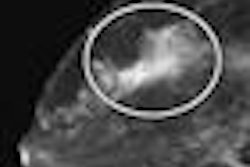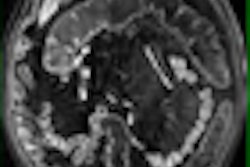Using MRI, researchers at the University of California, San Diego (UCSD) School of Medicine in La Jolla have identified a pattern of regional brain atrophy in patients with mild cognitive impairment (MCI) that indicates a greater likelihood of progression to Alzheimer's disease.
The study showed that some individuals with MCI have the atrophy pattern characteristic of mild Alzheimer's disease. These people are at higher risk of experiencing a faster rate of brain degeneration and a faster decline to dementia than individuals with MCI who do not show the atrophy pattern, according to the study results.
UCSD researchers analyzed brain MR images from 84 patients with mild Alzheimer's disease, 175 patients with MCI, and 139 healthy patients, using semiautomated, individually specific quantitative MRI methods.
The results, published in an online edition of Radiology, showed widespread cortical atrophy in some patients with MCI across all cortical areas except those involved with processing of primary motor and sensory information.
Most indicative of future cognitive decline was atrophy in sections of the medial and lateral temporal lobes and in the frontal lobes. This pattern also was present in the patients with mild Alzheimer's disease.
In follow-up, patients with signs of atrophy in these brain regions showed significant one-year clinical decline and structural brain loss and were more likely to progress to a probable diagnosis of Alzheimer's disease. MCI patients without the pattern of atrophy remained stable after one year.
Related Reading
UCLA study finds PET with FDDNP radiotracer can predict Alzheimer's, January 13, 2009
PET, PiB support cognitive reserve hypothesis in Alzheimer's, November 14, 2008
MRIs show promise for early Alzheimer's diagnosis, July 28, 2008
Functional MRI may detect early Alzheimer's disease, September 25, 2007
FDG-PET can influence Alzheimer's, dementia treatment, September 6, 2007
Copyright © 2009 AuntMinnie.com




















